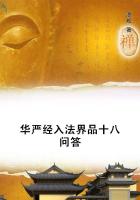But now, unavoidable as is this belief, it is yet a belief admitting ofno justification by reason: nay, indeed, it is a belief which reason, whenpressed for a distinct answer, rejects. One of the most recent writers whohas touched on this question -- Mr. Mansel -- does, indeed, contend thatin the consciousness of self we have a piece of real knowledge. His positionis that "let system makers say what they will, the unsophisticated senseof mankind refuses to acknowledge that mind is but a bundle of states ofconsciousness, as matter is (possibly) a bundle of sensible qualities."But this position does not seem a consistent one for a Kantist, who paysbut small respect to "the unsophisticated sense of mankind" whenit testifies to the objectivity of space. Moreover, it may readily be shownthat a cognition of self, properly so called, is negatived by those lawsof thought which he emphasizes. The fundamental condition to all consciousness,insisted upon by Mr. Mansel in common with Sir William Hamilton and others,is the antithesis of subject and object. On this "primitive dualismof consciousness," "from which the explanations of philosophy musttake their start," Mr. Mansel founds his refutation of the German absolutists.
But now what is the corollary, as bearing on the consciousness of self? Themental act in which self is known implies, like every other mental act, aperceiving subject and a perceived object. If, then, the object perceivedis self, what is the subject that perceives? or if it is the true self whichthinks, what other self can it be that is thought of? Clearly, a true cognitionof self implies a state in which the knowing and the known are one -- inwhich subject and object are identified; and this Mr. Mansel rightly holdsto be the annihilation of both.
So that the personality of which each is conscious, and the existenceof which is to each a fact beyond all others the most certain, is yet a thingwhich cannot be known at all, in the strict sense of the word. §21. Ultimate Scientific Ideas, then, are all representative of realitiesthat cannot be comprehended. After no matter how great a progress in thecolligation of facts and the establishment of generalizations ever widerand wider, the fundamental truth remains as much beyond reach as ever. Theexplanation of that which is explicable, does but bring into greater clearnessthe inexplicableness of that which remains behind. Alike in the externaland the internal worlds, the man of science sees himself in the midst ofperpetual changes of which he can discover neither the beginning nor theend. If he allows himself to entertain the hypothesis that the Universe originallyexisted in a diffused form, he finds it impossible to conceive how this cameto be so; and equally, if he speculates on the future, he can assign no limitto the grand succession of phenomena ever unfolding themselves before him.
In like manner if he looks inward he perceives that both ends of the threadof consciousness are beyond his grasp. Neither end can be represented inthought. When, again, he turns from the succession of phenomena, externalor internal, to their intrinsic nature, he is just as much at fault. Supposinghim in every case able to resolve the appearances, properties, and movementsof things, into manifestations of Force in Space and Time; he still findsthat Force, Space, and Time pass all understanding. Similarly, though analysisof mental actions may finally bring him down to sensations, as the originalmaterials out of which all thought is woven, yet he is little forwarder;for he can give no account either of sensations themselves or of that whichis conscious of sensations. Objective and subjective things he thus ascertainsto be alike inscrutable in their substance and genesis. In all directionshis investigations eventually bring him face to face with an insoluble enigma;and be ever more clearly perceives it to be an insoluble enigma. He learnsat once the greatness and the littleness of the human intellect -- its powerin dealing with all that comes within the range of experience, its impotencein dealing with all that transcends experience. He, more than any other,truly knows that in its ultimate nature nothing can be known.















